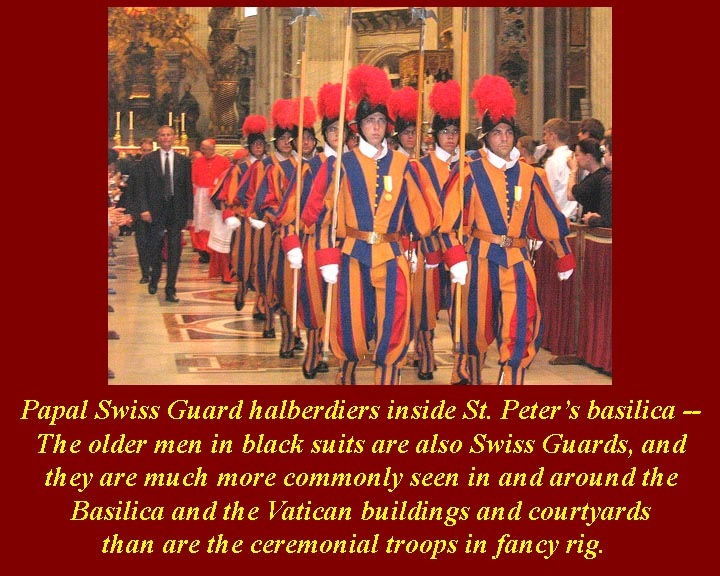The government had justified its choice to employ a private firm with local knowledge to guard the Tripoli embassy because it needed time to draw up an operational plan and reach a decision on whether to proceed.
This story has it all–from irony to hilarity. Here are the Swiss, whom for hundreds of years were known for having some of the best mercenary armies in the world, and they contract with a foreign firm called Aegis to protect their embassy in Libya? I guess the Swiss Guard is good enough for the Pope, but not good enough for the Swiss Embassy? lol It is also ironic because the Swiss wanted to ban the use of PMSC’s, but here they are contracting the services of one to protect their embassy. hmmm…..
All kidding aside, the way I look at this story is that it was an honor that Aegis was chosen and given such a contract. And the Swiss government has within it’s right to contract the services of such a company, if it makes sense for that particular situation. I would also be curious about this quote, because the article does not give enough information as to the real numbers here. Like what was the length of time for the Aegis contract? Was this just a three month contract, or what? Because if they are going to throw around a cost effectiveness statement like this, then we need to see the numbers.
The foreign ministry said on Thursday that the Aegis contract will have cost SFr960,000 altogether. The cost to deploy members of the Army Reconnaissance Detachment 10 should be around SFr600,000 for six months.
If anyone from the company has anything to say about the contract itself, please feel free to do so in the comments section. Because this particular article makes it sound like Swiss Commandos are having to storm in and save the day.
I suspect otherwise, and if anything, Aegis did exactly what they were asked to do. Provide security on the ground for the start up of this thing, and meanwhile the Swiss can figure out a plan for what they want to do. –Matt
Commandos ready to secure Tripoli embassy
Jan 26, 2012
Swiss special forces will officially take over security tasks at Switzerland’s embassy in Libya on Monday, replacing private firm Aegis.
The government’s decision to hire Aegis for over three months was widely criticised in Swiss political circles. Although the company is headquartered in Basel since 2010, it also employs 20,000 mercenaries who are deployed mainly in Iraq and Afghanistan, making it one of the world’s biggest private armies.
The government had justified its choice to employ a private firm with local knowledge to guard the Tripoli embassy because it needed time to draw up an operational plan and reach a decision on whether to proceed.
The cabinet has since drawn up legislation banning private security firms operating in conflict zones or holding companies in this sector from being based in Switzerland.
The foreign ministry said on Thursday that the Aegis contract will have cost SFr960,000 altogether. The cost to deploy members of the Army Reconnaissance Detachment 10 should be around SFr600,000 for six months.
The embassy in Tripoli is the only Swiss representation abroad where Swiss soldiers will be responsible for security.
Story here.
